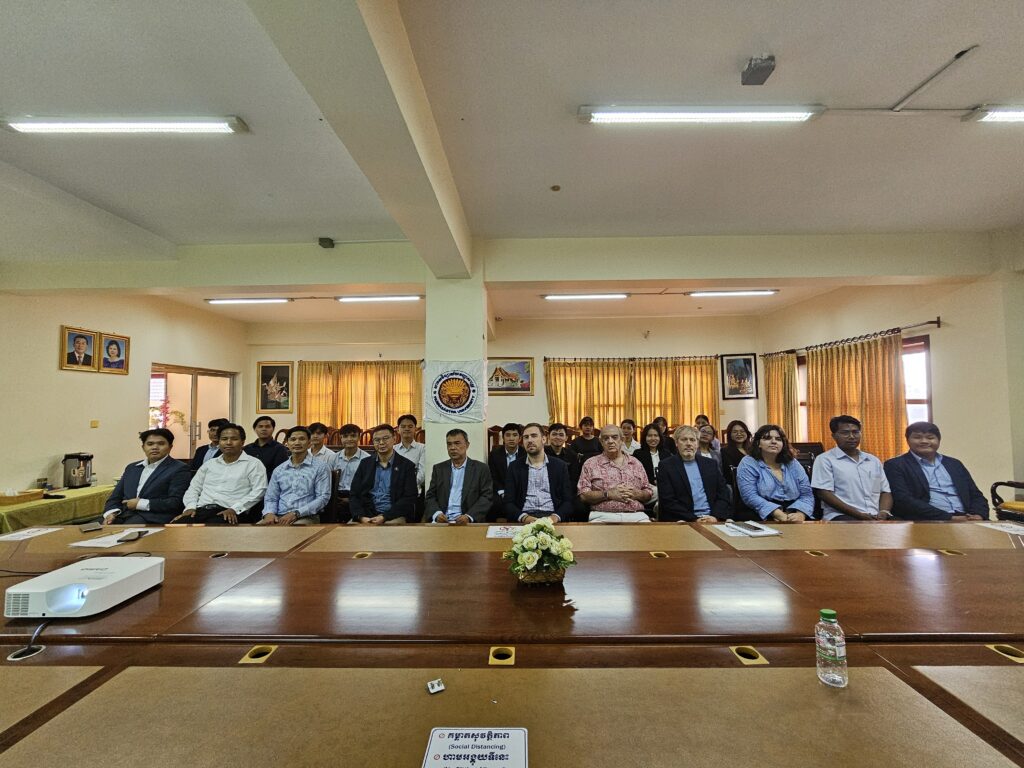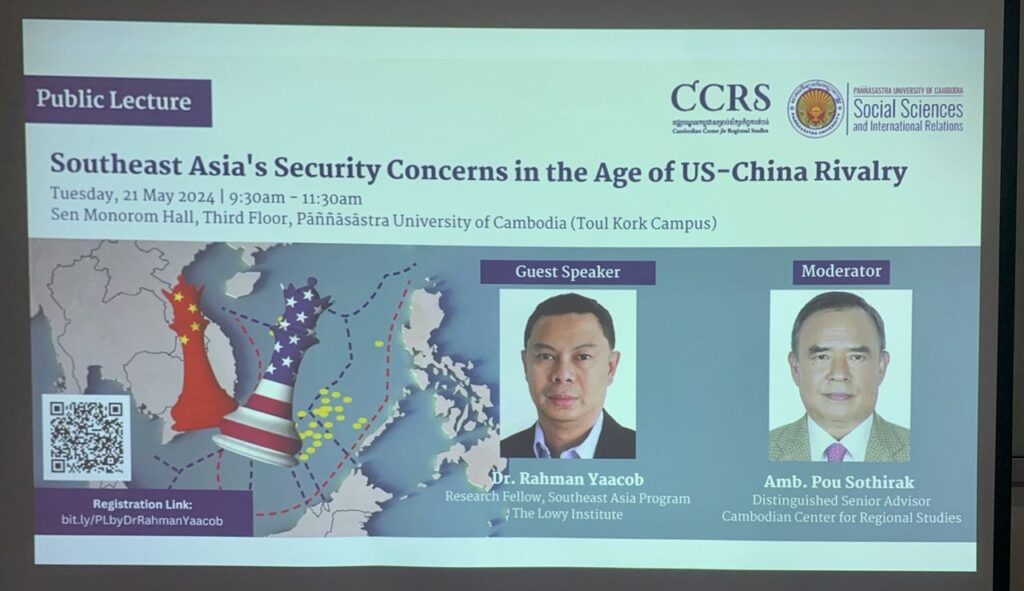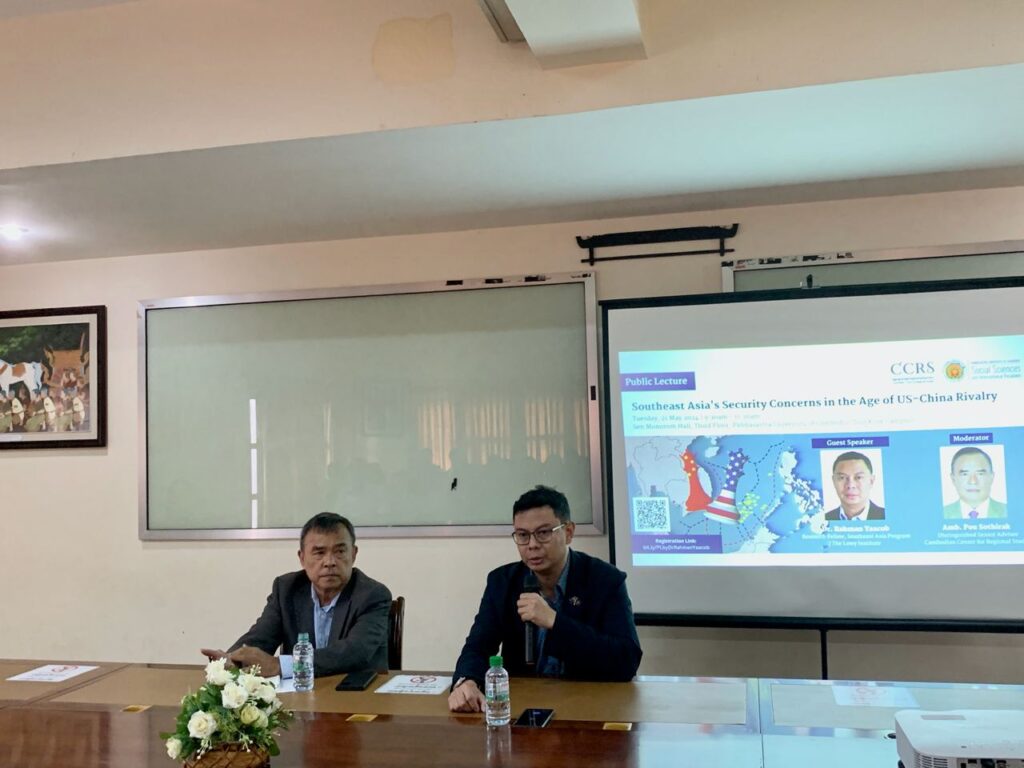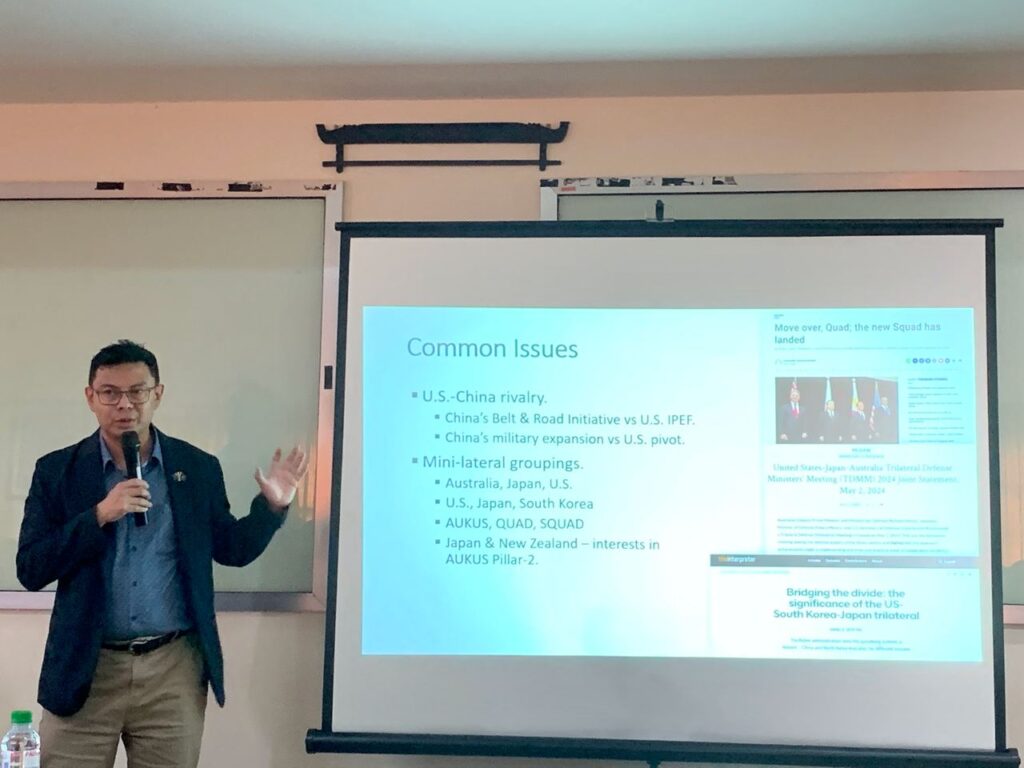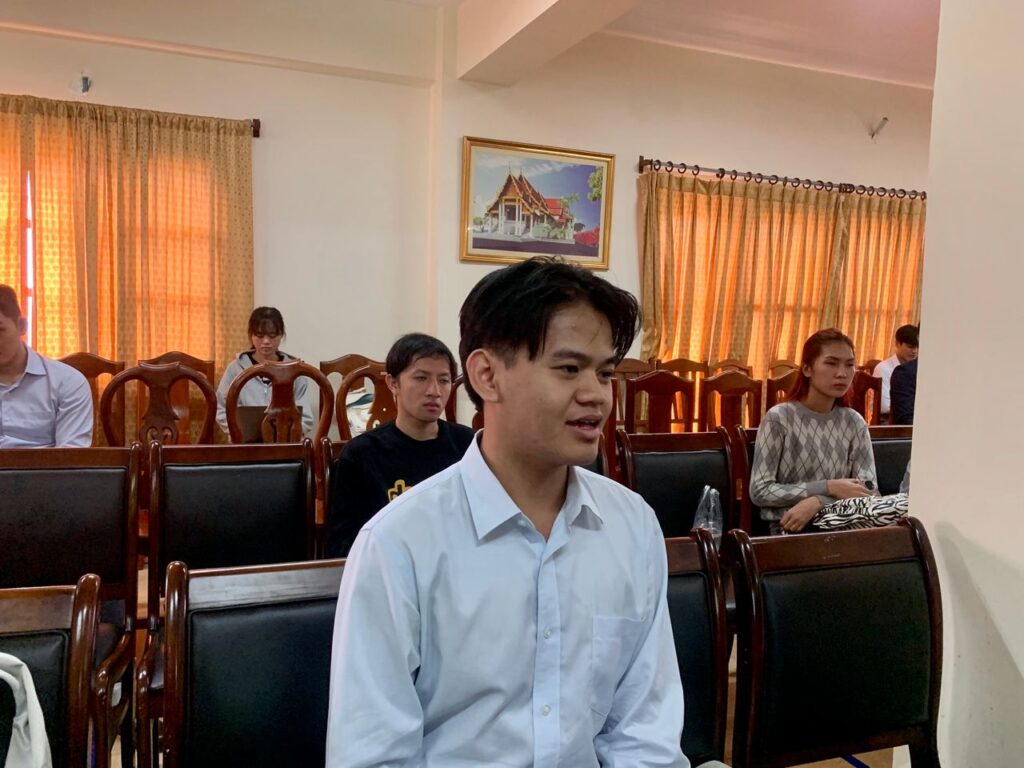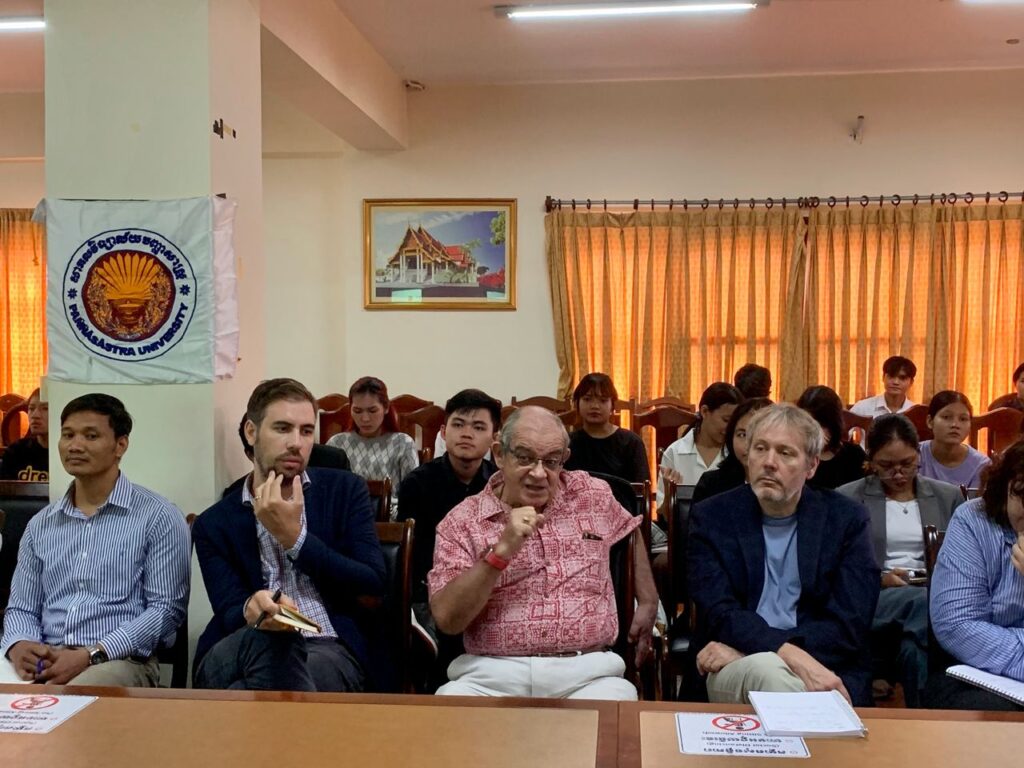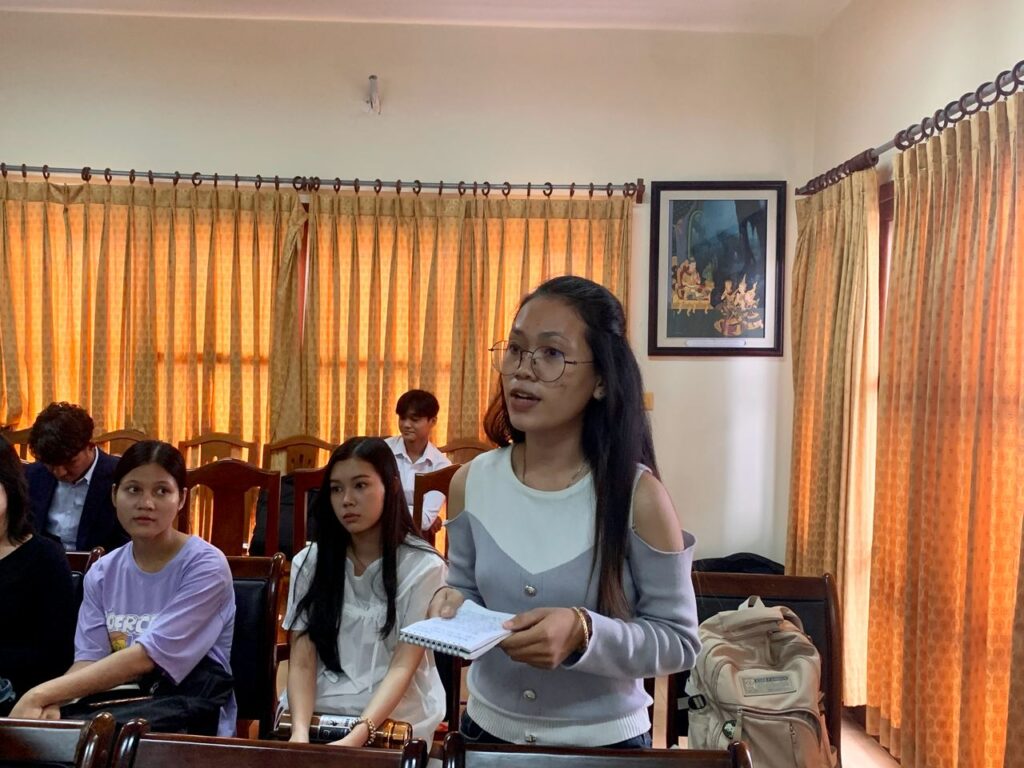On 21 May 2024, 9:30-11:00am, the Cambodian Center for Regional Studies (CCRS) organized a public lecture on “Southeast Asia’s Security Concerns in the Age of US-China Rivalry” by Dr Rahman Yaacob, Research Fellow, Southeast Asia Program, The Lowy Institute. Amb. Pou Sothirak, CCRS’ Distinguished Senior Advisor moderated this discussion. The event was supported by Faculty of Social Sciences and International Relations, Pannasastra Unviersity of Cambodia. About 40 participants, comprising of diplomats, CCRS researchers, journalists, and PUC students, took part in this lecture.
Dr Yaacob gave a captivating lecture. He said great power rivalry is not a new phenomenon in Southeast Asia. Since the Second World War ended, the region has seen contestation for influence between different great powers. In the contemporary period, this contestation involves the US and China. A significant ramification of US-China rivalry for influence in Southeast Asia is that regional states’ security concerns are often interpreted from the lens of great power rivalry. Rarely considered are the domestic and regional dynamics that influence the decision-making process of Southeast Asia’s leaders and policymakers.
In this context, during this lecture, Dr Yaacob analyzed the pressing security challenges facing Southeast Asian states. Drawing from publicly available defence documents from regional states, such as Defence White Papers and also draws data from interviews with policymakers and military and intelligence officials across Southeast Asia, he examined the intersection between U.S.-China rivalry and regional security issues across the maritime, cyber, and non-traditional security domains.
His presentation had two key points, namely trend across the Indo-Pacific, and Southeast Asia’s Security Perceptions. Regarding Indo-Pacific’s strategic environment, based on various credible surveys, there have been trust deficit between China and many states in the region including US, Japan, South Korea, Australia and some countries in Southeast Asia. This trust gap has been driven by many factors including territorial and trade disputes, and China’s military behaviors.
As for the Southeast Asia’s security perceptions, Dr Yaacob told the gathering that there is no “One Southeast Asia” due to the diversities of ethnic groups, historical and colonial experiences, political system and economic status within regional states. These factors shape Southeast Asian states’ security perceptions, and therefore, their foreign and security policies.
However, despite differences, ASEAN states have common security concerns, particularly the rise of China, navigating the US-China rivalry, and other concerns namely, maritime domain, cyber security, and internal security.
On the rise of China, there have been concerns in many SEA countries. While being an important partner to the region, many ASEAN states are concerned about China’s regional ambition, particularly its massive military build-ups and power projection capabilities, and the rationales behind doing so. Beijing’s actions in dealing with regional issues such as the South China Sea has reinforced anxiety for many in the region about China’s real ambition, causing trust gap between ASEAN countries and China.
Regarding the US-China rivalry, their power contestation is worrisome because both are important for SEA states. On the one hand, China is a major economic partner and source of aid for many states in the region. While there are trust gaps and pressing issues between some SEA states and Beijing, the regional countries also take into account the importance and benefits in continuing to engage with China, especially economically. On the other hand, for some ASEAN countries, the U.S. is a major security partner. While some regional states view the US critical to counterbalance China’s military expansion, they have two major concerns. First is how sustained and reliable the US’ commitment to the region in the wake of rising China. Second is, according to views in some Southeast Asian countries, several US operational or tactical strategies in counterbalancing China such as certain aspects of FONOPS are seen potentially destabilizing the region.
Beyond US-China competition, Southeast Asian countries also have other security concerns such as maritime domain, cyber security, and internal security. As for maritime domain, SEA states such as Malaysia and the Philippines still have to deal with challenges such as terrorist groups, weapons, and human trafficking along the Sulu Sea. Regarding cyber security, there have been constantly cyber-attacks for countries in the region. Lastly, internal security remains a concern for many regional states including territorial claim from non-state actors, domestic insurgency and separatist movements, and unexploded ordinance.
Dr Yaacob concluded by saying Southeast Asian countries are not only concerned about US-China rivalry, but also other important concerns. Dealing with these complex security challenges on many different fronts requires ASEAN states to enhance their level of sophistication in dealing with major powers while enhancing their capacity to deal with their more pressing security challenges.
During the Q & A session, there were interactive discussions between Dr Yaacob and the participants. The audience put forward many pertinent questions to him of which he satisfactorily answered related to regional security challenges such as ways SEA countries can enhance their level of sophistication in dealing with major powers, regional perceptions of China’s security interests in Southeast Asia, perceived imperatives of the US’ alliance system in the region, differing views among SEA states on security challenges, status of negotiation of the code of the conduct of the South China Sea and possible ways forward, and relevance and future of ASEAN centrality in managing regional issues.
CCRS would like to express our appreciation to Dr Yaacob for sharing his rich perspectives on regional security challenges amidst US-China rivalry during the entire lecture. We also thanked PUC’s Faculty of Social Sciences and International Relations for the support. Our thanks also went to all the attendees for their participations.
The event was concluded in a friendly manner.
